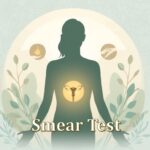A guide from Holistic Gynaecology Clinic London
Menstrual cramps, or dysmenorrhoea, affect up to 90% of women at some point in their lives. Many are now turning to natural approaches such as zinc supplementation for relief. Below, our team at Holistic Gynaecology Clinic London answers the most common questions about zinc and its role in managing menstrual pain.
1. What exactly is zinc?
Zinc is an essential trace mineral found throughout the body. It supports immune function, cell repair, hormone production, and helps regulate inflammation. Beyond its well-known benefits for the skin and immune system, zinc has also been shown to play an important role in reducing menstrual cramps and supporting overall menstrual health.
2. How does zinc help with period pain?
Research shows that zinc may ease period pain through several mechanisms:
- Anti-inflammatory effects: Zinc lowers prostaglandin levels — compounds that trigger uterine contractions and pain.
- Antioxidant protection: It helps reduce oxidative stress, protecting uterine tissue and calming inflammation.
- Hormonal balance: Zinc supports oestrogen and progesterone regulation, promoting more stable and less painful cycles.
- Nerve support: By maintaining healthy nerve function, zinc can reduce the intensity of pain signals during menstruation.
3. What does the research say about zinc for menstrual cramps?
Clinical studies have consistently found zinc to be effective in reducing both the intensity and duration of menstrual pain.
- A 2020 study in Complementary Therapies in Medicine reported that women taking 30mg of zinc daily for three days before their period experienced significantly less pain than those on a placebo.
- A UK-based meta-analysis in the Journal of Obstetrics and Gynaecology confirmed that zinc supplementation is more effective than placebo for relieving period pain.
4. How should I take zinc for period pain relief?
- Dosage: 30mg daily, starting one to three days before menstruation and continuing for the first two days of your period.
- Best forms: Zinc picolinate or zinc citrate are better absorbed than zinc oxide.
- Food sources: Natural zinc-rich foods include pumpkin seeds, lentils, chickpeas, whole grains, beef, and shellfish.
Always consult your healthcare provider before beginning supplementation, especially if you’re on medication or have health conditions.
5. Is zinc safe to take?
Zinc is safe for most women when taken at the recommended dosage. However, long-term high doses (above 40mg daily) may cause nausea, digestive issues, or reduce copper levels in the body. Using zinc cyclically — only around your menstrual period — is typically safe and effective.
6. Can I combine zinc with other supplements?
Yes. Zinc works synergistically with magnesium and vitamin B6, both of which support muscle relaxation and hormonal balance. Together, they may enhance pain relief and overall menstrual wellbeing.
7. Who might benefit most from zinc supplementation?
Women who experience primary dysmenorrhoea (menstrual pain without underlying conditions such as endometriosis) often report the most benefit. However, anyone seeking a natural approach to reduce period discomfort may find zinc helpful as part of a holistic care plan.
8. When should I see a healthcare professional?
If menstrual pain regularly interferes with your quality of life, it’s important to seek professional advice. Persistent or severe pain can sometimes indicate an underlying condition that needs medical attention.
At Holistic Gynaecology Clinic London, our specialists can help identify the root cause of your period pain and create a tailored plan — combining nutrition, lifestyle, and integrative therapies for long-term relief.
Final Thoughts
Zinc is a safe, well-researched, and natural way to manage menstrual cramps. When used correctly, it can significantly reduce pain and improve overall menstrual health.
If you’d like to explore whether zinc or other nutritional approaches may help you, contact Holistic Gynaecology Clinic London today to speak with one of our women’s health specialists.





